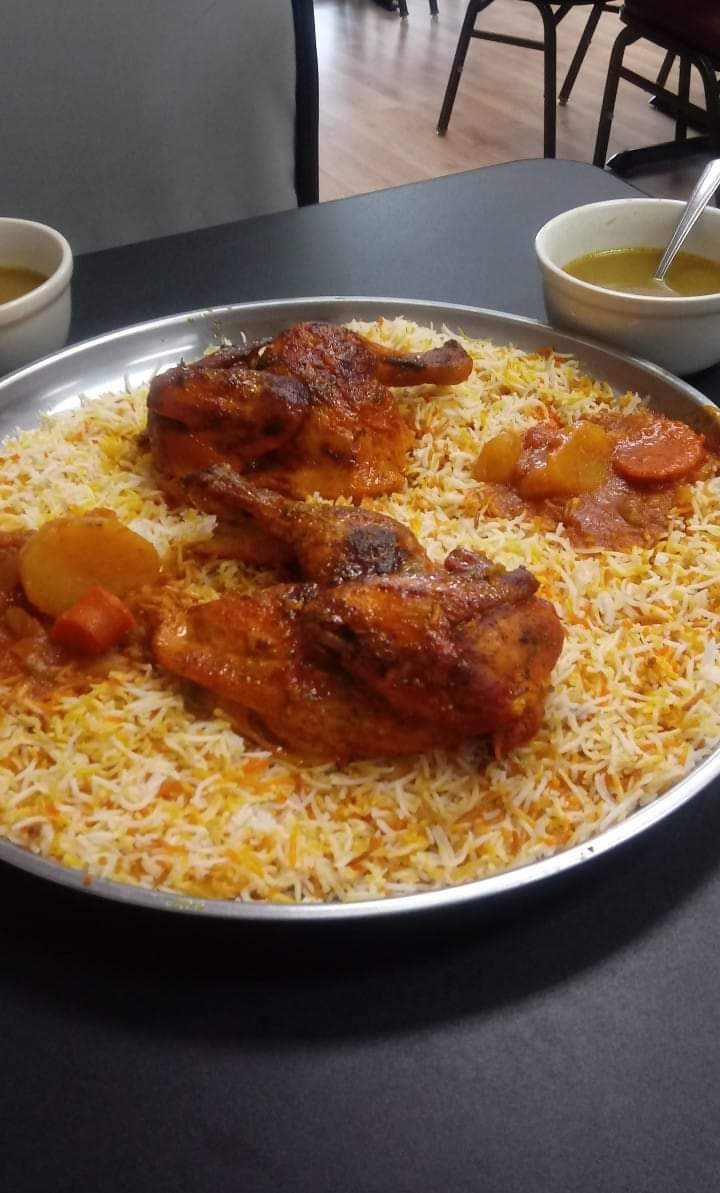In the Name of Allah, the Most Merciful, the Most Compassionate
All praise is due to Allah, the Lord of all creation—may He extol the Messenger in the highest company of Angels and send His peace and blessings upon him—likewise upon his family, Companions, and true followers.
Dear brothers and sisters! In some of my previous Friday sermons (Khutbah) I discussed Luqman Al-Hakim’s first advice to his son with regards to the quality of Prayer (Salat). The second advice he gave was about food. He said that you should guard and watch your food intake. It is a two-part advice. One is that over eating should be avoided, because it is the root cause of ill health. Prophet Muhammad (Peace be upon him) had advised us to divide our stomach into three compartments; one for food, the second for water, and the third for air. If applied, this formula can ensure good health.
The second part of the advice means to be careful about the Halal (pure and recommended) and the Haram (forbidden) food, because the Noble Qur’an and Hadiths of Prophet (Peace be upon him) mandate Halal food. Halal food means that food must be procured and purchased through fair, legitimate, and honest means. According to a Hadith quoted in Sahih Muslim:
“Prophet (Peace be upon him) mentioned a person, who had dust on his clothes and hair due to a long journey, was making supplications saying “Ya Rabb, Ya Rabb”, but his food, drink and dress was Haram. Though Allah Almighty accepts supplications of a traveler, but his involvement in Haram made his supplications unacceptable.”
According to one of Prophet (Peace be upon him)’s Hadith:
“Supplications of three persons are accepted: the traveler, father’s supplication for his off spring, and supplication of the oppressed against the oppressor.”
According to yet another Hadith:
“Allah Almighty has appointed an angel, who day and night announces from Baitul-Maqdis that obligatory and supplementary prayers of a person, who eats Haram, will not be accepted.”
Anas (RA) asked Prophet (Peace be upon him) to pray for him so that he may become “Mustajabud-da’awah.” The term “Mustajabud-da’awah” means a person whose prayers and supplications are accepted. Prophet (Peace be upon him) replied: “Ya Anas, earn an honest living and eat Halal food, Allah Almighty will make you “Mustajabud-da’awah”, and will grant you whatever you ask. Keep yourself away from Haram, because even a morsel i.e. a small bite of Haram food invalidates supplications for forty days.” [At-Targhib wat-Tarhib]
There are many other spiritual and physical disadvantages of Haram food. Let me listed four disadvantages:
1. Haram food extinguishes the light of Iman (faith), and the heart become dark.
2. It makes man dull, lethargic, and inactive.
3. It causes to commit Haram deeds and corrupts thoughts and action.
4. It kills conscience and puts a barrier between man and virtue.
The essence is that Haram creates a distance between man and religion, ruins the Hereafter, the door of virtues is closed on him, and that of temptations and sin is flung wide open.
Yusuf Ibn Artat (Rahimahullah) is quoted in Kitabul-Kaba’ir that when Shaitan (Satan) finds a youth busy in prayers and submitting to the obedience of Allah Almighty, he asks his friends to find about his food and drink. If it turns out to be Haram, then there is nothing to worry about as his prayers and obedience is futile and wouldn’t be of any good to him.
Respected brothers and sisters! In today’s society Haram is practiced in many ways, and majority is not even aware of it. Interest, usury, bribery, cheating in commercial transactions, lying, disregards of duties of the self and rights of others, theft and larceny and many other Haram acts are a common practice. Knowledge is not scarce, but it is action which is missing. And the main reason is that our earnings are not honest, and our food and drink is not fair and pure. As a result we cannot practice virtue and are devoid of righteousness.
According to a Hadith of Prophet (Peace be upon him) there will be some people on the Day of Judgment whose virtues will match the size of the mount Tihamah, meaning that they will have abundance of good deeds. But when they will stand before Allah Almighty, all their good deeds will be on no value, and they will be thrown into Hell Fire. Companions (RA) submitted, why will that happen o Messenger of Allah? Prophet (Peace be upon him) replied that they performed Prayer (Salah), observed fast, paid Zakah, and performed Hajj, but never saved themselves from Haram, which ruined all their good deeds.” [Kitabul-Kaba’ir]
Allah Almighty says in verse 51 or Surah Al-Muminun:
“O Messengers eat good things and do good deeds.”
The Qur’anic verse has used the word “Tayyibat” which means nice, pure and decent things. In the Islamic Shari’ah, things that are condemned as Haram are neither pure, nor appealing to common sense, that is why “Tayyibat” means things which internally and externally are pure and appealing. The verse tells us that all the Prophets and Messengers were given two main instructions. One: Eat pure and Halal food, and Two: Perform good and righteous deeds. When Prophets and Messengers, who are Ma’sum minal-Khata (incapable of committing sins), have been commanded as such, then we their followers should be very particular in taking all precautions possible to avoid Haram and the forbidden.
Scholars say that the combination of these two commands Akli-Halal and Amalis-Salih, i.e the fairly earned wages and pure food and the righteous deeds are interdependent. There is a wise saying that goes as follows:
“Halal earnings and food make you do good and righteous deeds, and Haram earnings and Haram food prompts you to commit Haram acts and deprives you of the ability to think or do good.”
Dear Servants of Allah! It was due to the teachings of the Noble Qur’an and training of Prophet (Peace be upon him) that companions of the Prophet (Peace be upon him) were very cautious and conscious about their food. Let me give you just one example here. Once Sayyidinah Abubakar Siddiq drank the milk brought by his servant. He later asked as to where he did bring the milk from? The servant replied that he had performed a “Kahanat” for a certain tribe and was given milk in exchange as wages. “Kahanat” is a Haram act, a sort of chanting that was common in the pre-Islamic days. Hearing this Sayyidinah Abubakar Siddiq immediately put his finger in his throat and threw out, and kept doing that for some time. People who saw the situation thought that perhaps Sayyidinah Abubakar Siddiq will pass out due to pain. Sayyidinah Abubakar Siddiq made repentance, prayed and submitted:
“O Allah, I repent and apologise for the milk which has gone into my system. When Prophet (Peace be upon him) heard of the incident, he commented: “Don’t you know that nothing goes to the stomach of Abubakar Siddiq (RA), except what is “Tayyib”, pure and Halal food?” [Bukhari and Muslim]
All praise is due to Allah, the Lord of all creation; may Allah extol the mention of our noble Prophet Muhammad in the highest company of Angels, bless him and give him peace and security―and his family, his Companions and all those who follow him correctly and sincerely until the establishment of the Hour.
Murtadha Muhammad Gusau is the Chief Imam of Nagazi-Uvete Jumu’ah and the late Alhaji Abdur-Rahman Okene’s Mosques, Okene, Kogi State, Nigeria. He can be reached via: [email protected] or +2348038289761.
This Jumu’ah Khutbah (Friday sermon) was prepared for delivery today Friday, Rajab 12, 1444 AH (February 03, 2023).





